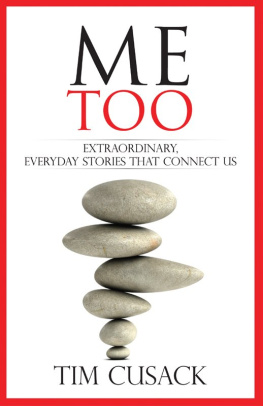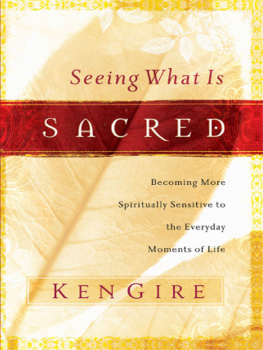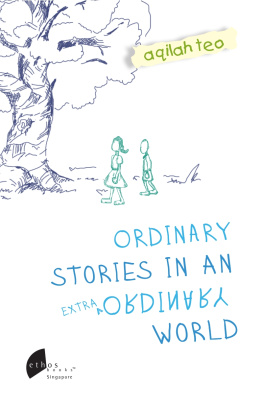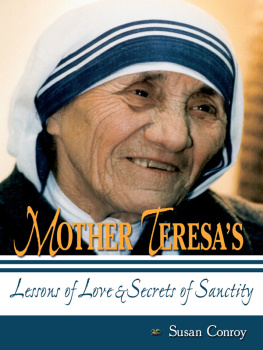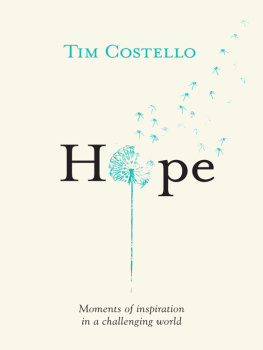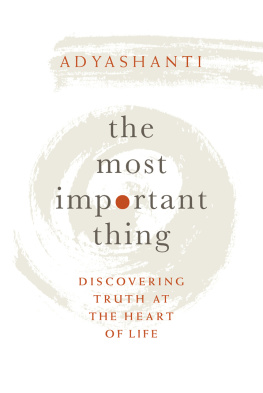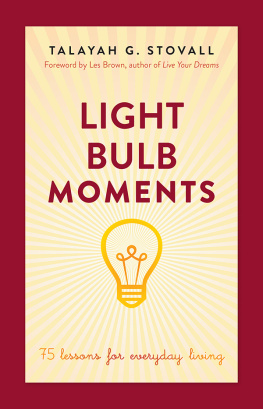Me Too
Copyright 2012 by Tim Cusack
All rights reserved. Except as permitted under the U.S. Copyright Act of 1976, no part of this publication may be reproduced, distributed, or transmitted in any form or by any means, or stored in a database or retrieval system, without the prior written permission of the publisher.
TC Publishing
First Edition 2012
The author is grateful for permission to use the following copyrighted material:
Cover design by Bambang Superman through 99designs.com
Cover photo by Fotolia, Steve Young, photographer, photo number 31342646
Interior design and typset by Katherine Lloyd, The DESK
Library of Congress Cataloging in Publication Data
Cusack, Timothy Michael
Me Too: Extraordinary Everyday Stories that Connect Us / Tim Cusack
ISBN: 978-0-9882506-0-4
ISBN: 9780988250611
Library of Congress control number: 2012949352
need key words
PRINTED IN THE UNITED STATES OF AMERICA
Printed on acid-free paper
To those who sense pain in others, may you be a healing presence.
CONTENTS
EDITORS NOTE
I n a way, I think that the story of how Tim Cusack and I came to collaborate on this book is just like one of the stories that you will find herein; its meaningful, serendipitous, and of course truebut Ill leave that story for Tim to tell.
After many years of being asked by audience members if he had a book that they could take home after a talk, Tim overcame his fear of writing and began scribing anecdotes from his life the old fashioned way, with a pen and yellow lined paper.
When we first met around the kitchen table in Tims home, we couldnt have predicted where this would lead. It was something that neither of us had done before, but I can only say that we hit it off right away. We read through one of the stories, sat thinking for a minute, and then jumped into a discussion of what this piece would mean to people, what they could take away from it, and how they could apply it to their own lives.
I told Tim when we started this process, and Ill say it again here, that he did the hardest part: he took the first step. As a writer myself, I know that the most difficult part of a project is getting started, pushing aside your insecurities and the voice in your head that says, You cant do this.
After a few months of sitting around that same table, two laptops in front of us, poring over documents and discussing life, death, and comma usage, I can say that these stories are presented to you exactly as Tim Cusack wants them to be. Its not your typical literary work. The writing is simple, straightforward, and in the style that Tim would tell them were you sitting around the house with him, drinking tea and talking about life.
Although each story is unique, there is a common theme that runs throughout the book. Whether light-hearted or serious, they are intended to provide lessons for life, and encourage the reader to draw on these lessons and reflect on their significance in his or her own life. They are not written in chronological order. This is not a biography, and therefore each chapter can be read on its own.
After getting to know Tim quite well, I can say with confidence that he has enough incredible stories to fill twenty books, but these are the ones that made the cut. Although he is a speaker by trade, many of these are experiences that he has never shared with audiences, but they are the moments in his life that came to him as he put pen to paper, and he bravely chose not to second-guess this process, and to share them with you.
Marie LockerdSeptember 2012
INTRODUCTION
Dirt Boy
H is grandmother yelled yet again, The school bus is waiting! If you dont hurry, it will leave without you! Roy came running through the back door, through the family room, and into the kitchen. He grabbed his books off the counter, kissed his grandmother on the cheek, and said, Love you, Gama. Thats what hed called her from the time he could talk.
The bus driver gave him a disgusted look and said Hey Roy, if I have to sit here for more than thirty seconds one more time, youre walking to school. I know your old grandma doesnt drive, so enjoy your walk, you little dirt boy.
Dirt boy. Roy heard that name at least 12 times a day now that he was in first grade. He spent six hours a day at school, and at least two kids per hour would tease him. Kids would say Dont sit next to me dirt boy, or Dont touch my paper, dirt boy. It was true, Roys hands were always dirty and so were his pants. He would wipe his hands on his pants as he worked in his secret garden behind the wooden fence in the back yard of his grandmothers house.
Roy was just two years old when his parents died in a car accident. His grandmother was the only family member who wanted him. Roys aunts and uncles thought he was a weird kid because he didnt talk. He didnt even seem to try. He wasnt interested in playing with toys or stuffed animals like most kids his age.
What he did seem to love was anything to do with a living plantthe grass in the lawn, a tree, a flower. He would sit next to a house plant and touch its leaves, trying to hold it, and at times causing it to spill over, getting dirt everywhere. Once when this happened, his uncle threw the plant out the back door next to a pile of firewood. Roy crawled out back and sat with the destroyed house plant. Even months later when his grandmother found him in that pile of wood, she noticed that the house plant was more alive, more colorful, than shed ever remembered, and yet, its roots were exposed. She thought to herself, How could this be?
Roys first grade teacher, Mrs. B, would have Roy wash his hands with soap and water before lunch, but his hands remained stained. Roy, said Mrs. B, Did you forget your lunchbox again? Roy looked down at the floor, ashamed. There were many days he forgot his lunch. He would hide by the old oak tree, out of sight from the other kids, talking to the tree as if it were his best friend. He forgot his lunchbox because he was always running late, working in his secret garden. Mrs. B said, Sit here at my desk. Heres an apple and some peanuts. Ill be back in a few minutes. Youre staying in today, and Im having a talk with your grandmother after school.
As Roy picked at his lunch, he was distracted by what hed seen every day since coming into this classrooma brownish, dying, potted tree in the back corner of the room. He didnt know what type of tree it was. It stood about three feet tall with medium sized leaves, maybe some kind of dwarf cherry or apple, he thought. Everyday he had wanted to tend to it, but didnt want to get caught playing in the dirt. Today he didnt care. He was alone. Roy stood up and walked toward the dying tree. As he got closer the trees brown, shriveled leaves began to shake. He could see it moving as if a small breeze was blowing it.
With his small dirty hands, Roy touched the trunk of the tree at the point where it entered the soil. The color of the main trunk started turning from ash gray to a healthy dark brown. The leaves turned from their deathly shade into a deep emerald green. Small pink blooms began appearing out of buds that were never there before. The tree grew five feet taller than it was just seconds ago.
He heard the door open without warning. Roy what are you doing? asked Mrs. B. Roy couldnt lie. It was dying. It just needed to be touched, to be held. It wanted to be loved. Mrs. B was in shock. She couldnt move. She couldnt believe what she was seeing. This old dying potted tree was more beautiful than any plant she had ever seen in her life.
Mrs. B said, Roy, tell me the truth. Did you just touch that tree? Yes, said Roy. She walked over to him, sat down and said, At home, at your grandmothers house, do you have plants? Yes, Roy said. Is that why your hands are always so dirty? Roy just looked at her. After school today Im going to drive you home. I want you to show me your plants.
Next page
